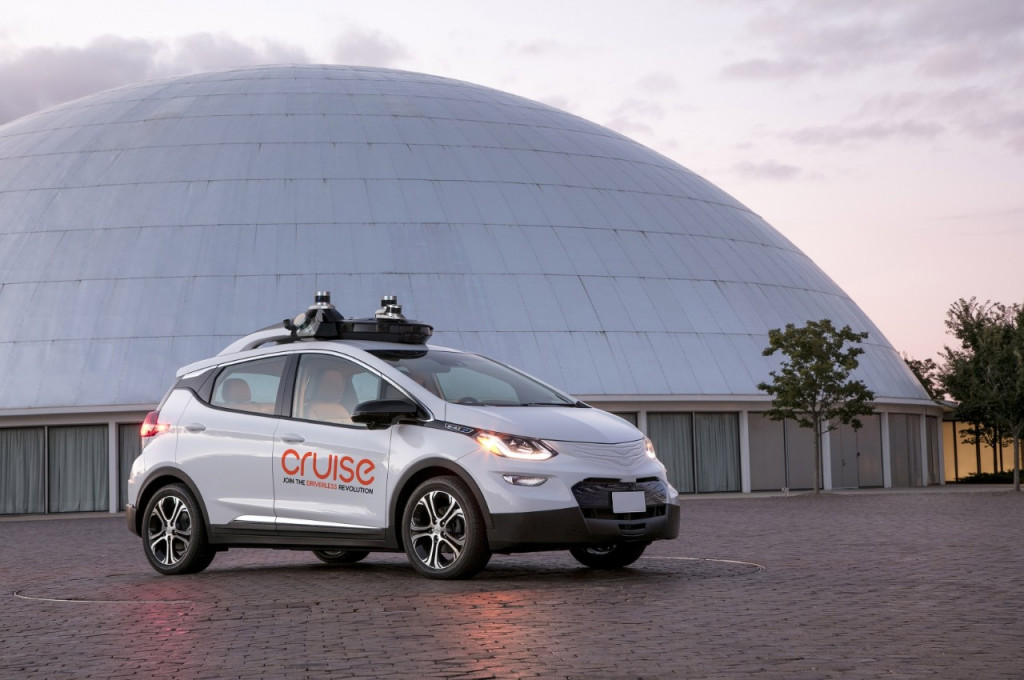General Motors on Friday revealed a self-driving car devoid of a steering wheel and pedals.
Called the Cruise AV (Autonomous Vehicle), the car is based on the Chevrolet Bolt EV and will hit the road as early as 2019, assuming GM receives regulatory approval.
The automaker is seeking approval from the National Highway and Traffic Safety Administration to operate as many as 2,600 of the vehicles, according to TechCrunch. GM also needs approval from the individual states it wants to run the cars in.
Should all go to plan, the cars will join a ride-sharing fleet either operated by GM or a partner such as Lyft. GM last August announced its own ride-sharing service called Cruise Anywhere that so far has only been used by employees at Cruise Automation, the self-driving car development company acquired by GM in 2016 for a rumored $1 billion.

GM Cruise Automation self-driving Bolt EV
The Cruise AV is GM's fourth-generation self-driving car. It features 21 radar sensors, 16 cameras and 5 lidar units, and runs on GM's own self-driving software. The car also features aids for the hearing and seeing impaired, such as the ability to close its own doors. This is also important if a passenger forgets to close the door after a ride.
Full details on its capabilities haven't been revealed but we know the car requires sufficiently detailed map data to operate. This means we'll likely see it initially deployed in only a few select areas where GM has been testing its self-driving cars, such as in San Francisco and parts of Michigan.
Getting a self-driving car devoid of a steering and pedals on the road by 2019 would put GM in the lead in the race for self-driving cars. Waymo (previously the Google Self-Driving Car Project) is thought to be months from offering a self-driving car service, though its cars still feature conventional controls. The same is true for nuTonomy, which has self-driving cars offering rides on a few streets in Boston and Singapore.
The technology has the potential to dramatically reduce injuries and deaths related to car crashes. GM estimates that human error is the cause of 94 percent of car crashes. But there's also huge financial gains to be had for early entrants. GM estimates that a self-driving car working around the clock could in its lifetime earn hundreds of thousands of dollars by offering rides, and it would bring in revenue from people that previously would have never been a customer of a car company.
